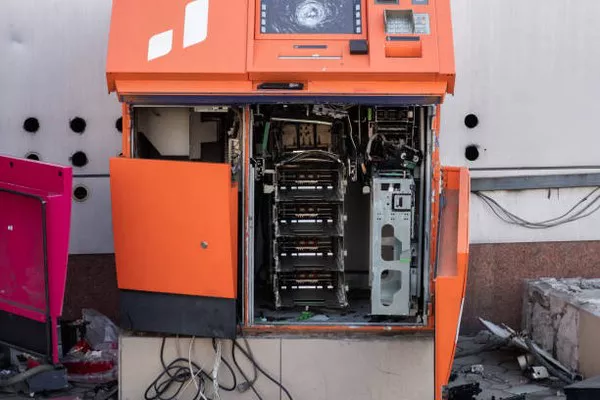In today’s world, having a reliable power backup is not just a convenience but a necessity. Whether it’s due to severe weather conditions, power outages, or other unforeseen events, having a generator ensures that your home remains functional and comfortable. However, selecting the right wattage generator for your house can be a complex decision, involving an understanding of your power needs, the types of generators available, and their respective capabilities. This comprehensive guide will help you determine what wattage generator is best suited for your home.
Understanding Generator Wattage
The wattage of a generator refers to the amount of power it can supply. This is crucial because it determines what appliances and systems the generator can support. Generators are generally classified into two types based on their wattage output: portable generators and standby generators.
Portable Generators: These are typically less powerful but more versatile, making them ideal for short-term use or emergencies. They are usually used for camping, outdoor activities, or as backup power during outages. Portable generators typically range from 1,000 to 10,000 watts.
Standby Generators: Also known as backup or whole-house generators, these are permanently installed and are designed to automatically provide power during outages. They are more powerful, ranging from 5,000 to 20,000 watts or more, and can support the entire home or specific circuits based on the wattage.
Assessing Your Power Needs
To determine the appropriate wattage for your generator, you need to evaluate the power requirements of your home. This involves calculating the wattage needed for essential appliances and systems that you want to keep running during a power outage.
Step 1: Identify Essential Appliances
List all the appliances and systems you wish to power. Common essentials include:
Refrigerator/Freezer: These appliances can consume between 800 to 1,200 watts each.
Heating/Cooling Systems: Depending on the type, these can range from 1,500 to 5,000 watts. Central air conditioners and electric heaters typically require significant power.
Lighting: Basic lighting for your home may require around 200 to 500 watts.
Medical Equipment: If you have medical equipment that requires electricity, check the wattage specifications to ensure you can support it.
Water Pump: If your home relies on a well pump, it can require between 500 to 1,500 watts.
Sump Pump: Necessary for homes with basements, it typically requires around 500 to 1,000 watts.
Step 2: Calculate the Total Wattage
Add up the wattages of all essential appliances and systems. It’s essential to account for starting wattages as well as running wattages. Appliances like refrigerators and air conditioners require more power to start up than to run continuously.
For example:
- Refrigerator: 1,200 watts (running) + 2,000 watts (starting)
- Air Conditioner: 2,000 watts (running) + 3,000 watts (starting)
- Lighting: 300 watts
- Water Pump: 1,000 watts (running) + 1,500 watts (starting)
Total Running Wattage: 1,200 + 2,000 + 300 + 1,000 = 4,500 watts
Total Starting Wattage: 2,000 + 3,000 + 1,500 = 6,500 watts
In this example, a generator should provide at least 6,500 watts to handle the starting wattages of these essential appliances.
Step 3: Consider Safety Margins
It is advisable to add a safety margin to the total wattage requirement to ensure that the generator operates efficiently without overloading. A safety margin of 20-25% is recommended. For a total requirement of 6,500 watts, a generator with at least 8,000 watts would be prudent.
Types of Generators
Generators come in various types and designs, each with specific benefits and drawbacks. Understanding these can help you make an informed decision.
1. Portable Generators
- Advantages: Versatile, relatively affordable, and can be used in various locations.
- Disadvantages: Requires manual setup and refueling, typically less powerful, and not ideal for long-term use.
Portable generators are suitable for powering a few essential items and are often used as temporary solutions. They are ideal for short-term power needs and are useful if you need mobility.
2. Standby Generators
- Advantages: Automatically starts during power outages, can power the whole house, runs on natural gas or propane.
- Disadvantages: More expensive, requires professional installation, and needs regular maintenance.
Standby generators are best for homeowners who want an automatic, reliable backup power source that can run the entire home. They are particularly beneficial in areas with frequent or prolonged power outages.
Installation and Maintenance
Proper installation and maintenance are crucial for ensuring the longevity and reliability of your generator.
Installation
Professional Installation: Standby generators should be installed by a licensed electrician to ensure compliance with local codes and proper integration with your home’s electrical system.
Location: Generators should be placed on a stable surface outdoors, away from windows and vents to avoid carbon monoxide buildup.
Maintenance
Regular Checks: Regular maintenance includes checking oil levels, air filters, and battery condition. Follow the manufacturer’s guidelines for servicing intervals.
Fuel Storage: Store fuel properly and ensure it is fresh. Old or contaminated fuel can affect performance.
See Also Is It OK to Run a TV on a Generator?
Conclusion
Choosing the right wattage generator for your home involves understanding your power needs, evaluating different types of generators, and considering installation and maintenance requirements. By accurately calculating your power needs and selecting a generator with adequate capacity, you ensure that your home remains powered during outages, keeping essential appliances and systems operational.
Whether you opt for a portable generator for flexibility or a standby generator for a seamless power backup solution, investing in the right generator provides peace of mind and ensures your home remains a safe and functional haven during power disruptions.

